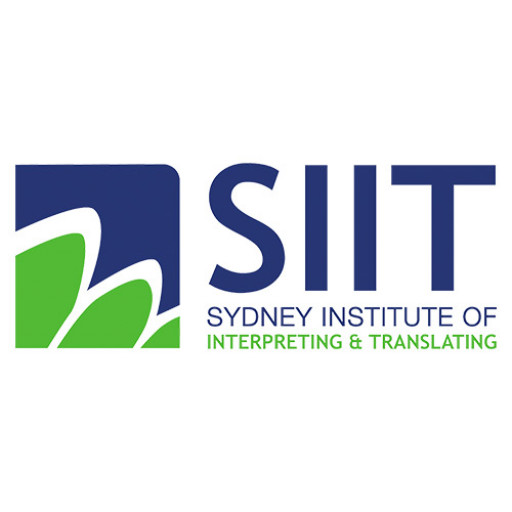Photos of university / #rmituniversity
The Bachelor of Interpreting (LOTE English) at RMIT University is a comprehensive and rigorous program designed to equip students with the essential skills and knowledge necessary to excel in the dynamic and demanding field of professional interpreting. This program focuses on developing high-level language proficiency in the students' chosen language other than English (LOTE) and English, along with specialized training in interpreting techniques, cultural competence, and ethical practices. Throughout the course, students engage with a diverse range of interpreting settings, including community, healthcare, legal, and conference interpreting, preparing them for a variety of career opportunities within Australia's multicultural society and beyond. The curriculum incorporates theoretical foundations of language and communication, practical interpreting exercises, and real-world simulations, ensuring graduates are confident and competent in both consecutive and simultaneous interpreting modes. Additionally, students have access to state-of-the-art interpreting labs and resources, allowing hands-on practice that mirrors professional environments. The program also emphasizes the development of critical thinking, problem-solving, and intercultural communication skills, which are crucial for addressing the complex issues faced in interpreting roles. Collaboration with industry partners provides students with internship opportunities and insights into current industry standards and practices, fostering strong professional networks. Graduates of this program are well-prepared to work as interpreters in various sectors, including government agencies, healthcare providers, legal systems, international organizations, and private enterprises. The Bachelor of Interpreting (LOTE English) at RMIT University stands out for its commitment to producing ethically responsible and culturally aware interpreters who can facilitate effective communication and promote understanding across cultures. With a strong foundation in linguistic expertise, practical experience, and industry engagement, alumni are equipped to make a meaningful impact in today’s interconnected world.
The Bachelor of Interpretation (LOTE English) at the Royal Melbourne Institute of Technology (RMIT) is a comprehensive and highly specialized program designed to equip students with the essential skills and knowledge required for professional interpretation between English and their native language. This program aims to prepare students for careers in various interpreting settings, including community, medical, legal, conference, and corporate environments. Throughout the course, students develop advanced language proficiency, honing both their source and target language skills to ensure accurate and culturally appropriate communication.
The curriculum emphasizes practical training alongside theoretical understanding, offering students numerous opportunities for hands-on experience. Core subjects cover topics such as bilingual communication, translation theories, ethics in interpreting, and specialized terminology in diverse fields. Students also learn about the social, cultural, and contextual factors that influence interpretation processes, allowing them to adapt effectively to different audiences and settings. The program incorporates simulated interpreting scenarios, live practice sessions, and industry placements to build confidence and competence in real-world situations.
In addition to language and interpreting skills, the program fosters critical thinking, professionalism, and ethical decision-making. Students are trained to handle sensitive information discreetly and to manage the pressures associated with high-stakes interpreting. The program also explores the use of modern interpreting technology and tools, ensuring graduates are well-versed in the latest industry standards.
Graduates of the Bachelor of Interpretation (LOTE English) are prepared to pursue diverse career paths, including freelance interpretation, working for government agencies, NGOs, international organizations, and private corporations. The program's strong industry connections and emphasis on practical experience make graduates highly sought after in the rapidly expanding field of interpretation and multilingual communication. By completing this program, students gain the skills necessary to facilitate effective cross-cultural dialogue and contribute meaningfully to a globalized world.
The Bachelor of Interpreting (LOTE English) at RMIT University requires students to complete a comprehensive coursework designed to develop high-level interpreting skills, linguistic competence, and cultural knowledge. The program emphasizes practical interpreting experience in various settings, including community, healthcare, legal, and business environments, to prepare graduates for professional careers. Students must undertake core subjects in language proficiency, interpreting theories, and ethical practices, complemented by elective courses that allow specialization in particular fields or industries. The curriculum includes language-specific interpreting practice, which involves both consecutive and simultaneous interpretation techniques, as well as training in note-taking, memory, and listening skills.
To graduate, students must accumulate a specified number of credit points through successfully completing lectures, tutorials, intensive workshops, and practical placements. The program particularly focuses on developing intercultural communication skills, understanding of social and legal contexts, and technical interpreting skills necessary for real-world applications. Students are expected to demonstrate a high level of bilingual proficiency and cultural awareness, as well as an understanding of the societal role of interpreters. The program also includes assessments in written assignments, oral presentations, and practical interpreting tests, ensuring that graduates are proficient in both their LOTE language and English.
Furthermore, students are encouraged to participate in internships and industry placements to gain firsthand experience and industry insights. The program’s structure aligns with industry standards and accreditation requirements from relevant professional interpreting organizations. Upon successful completion, graduates are equipped to work as professional interpreters in government agencies, legal institutions, healthcare facilities, and community organizations. The program is designed to foster lifelong learning and professional development, with opportunities for postgraduate study and specialization available after graduation.
The Royal Melbourne Institute of Technology (RMIT) offers a comprehensive range of financing options to support students enrolled in the Interpreting (LOTE English) program. Prospective students can explore various schemes to fund their studies, including government loans, scholarships, bursaries, and payment plans. Domestic students residing in Australia may be eligible for government-funded schemes such as the Commonwealth Supported Place (CSP), which significantly reduces tuition fees, making higher education more accessible. Additionally, the Higher Education Loan Program (HELP) provides income-contingent loans that allow students to defer the cost of their tuition until they achieve a certain income threshold after graduation.
International students enrolled in the Interpreting program have access to different financial support options, including international student scholarships offered by RMIT based on academic merit or equity considerations. These scholarships can cover partial or full tuition fees, easing the financial burden of study abroad. RMIT also encourages students to seek external funding sources, such as government scholarships from their home countries or private organizations, which can be used to supplement their educational expenses.
Fee payment plans are available for students who prefer to spread the cost of tuition over installments, which can be convenient for managing cash flows. RMIT offers flexible payment options, including upfront payment, installments through direct debit or credit card, and payment via authorized agents. Additionally, students are encouraged to explore part-time work opportunities available on campus or in the local community to finance their living expenses and enhance their educational experience.
Students should also consider additional costs associated with the program, such as course materials, specialized software, and professional development activities, which may not be covered by standard financial aid packages. It is advisable for students to consult RMIT’s official financial aid website and student support services to get detailed and personalized advice about available funding options. Overall, RMIT strives to make the Interpreting (LOTE English) program financially accessible for all qualified students by offering a variety of funding opportunities and support mechanisms tailored to their needs.
The Bachelor of Arts (Honours) in Interpreting (LOTE English) at RMIT University is a specialized program designed to prepare students for a professional career in interpreting and translation services. This program focuses on developing advanced language skills, cultural competence, and professional interpreting techniques across multiple modes, including consecutive, simultaneous, and sight translation. Students gain practical experience through simulated interpreting scenarios, industry placements, and collaborations with professional bodies, ensuring they are well-equipped to meet the demands of a dynamic and evolving sector.
The curriculum emphasizes strong core competencies in both the source language (LOTE) and English, with coursework covering topics such as intercultural communication, ethics and professionalism, note-taking skills, and specialized terminology in various fields such as healthcare, legal, and business sectors. The program also provides training in the use of interpreting technology and tools, latest industry standards, and quality assurance processes. Additionally, students are encouraged to undertake internships or work placements with accredited interpreting agencies to build industry connections and apply their skills in real-world contexts.
Graduates of this program are prepared for employment in various settings, including government agencies, courts, hospitals, international organizations, and private interpreting firms. The program also supports pathways for further postgraduate study and professional development, fostering ongoing learning and specialization within the interpreting profession. The program's design aligns with industry standards, ensuring graduates meet the competencies required for certification and recognition as professional interpreters both domestically and internationally. RMIT’s emphasis on practical training and industry engagement makes it a leading choice for students seeking a comprehensive and career-oriented education in interpreting.




